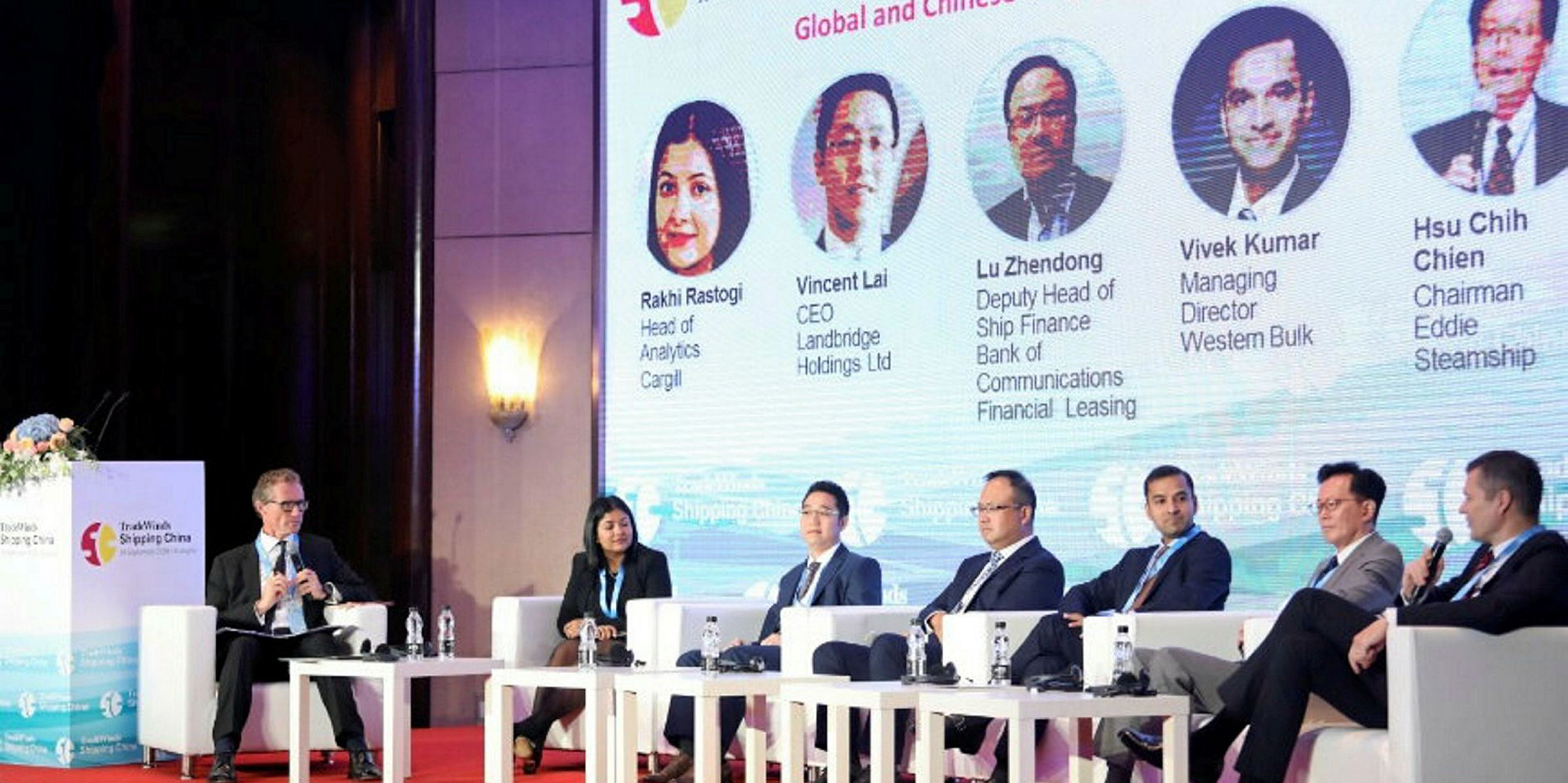Hopes of a buildup of market pressure towards a new dry bulk boom are misplaced, despite a strong economy for dry bulk shipping, said panellists at the TradeWinds Shipping China conference.
Fortunately they also agree that fears of a trade war inspired recession are probably overplayed.
Cargill's Asia Pacific head of analytics, Rakhi Rastogi, told delegates at the Shanghai conference today that regulatory changes are a big positive for shipping growth.
But Taiwanese shipowner Hsu Chih-Chien rejected an invitation to express optimism for the long term, and he found backing of others such as Western Bulk managing director Vivek Kumar.
Intact physical shipyard capacity is still lurking even in China's dormant shipyards and ready to be revived, and Hsu thinks mainland political authorities are ready to turn on the credit taps to choke the least sign of a freight rate boom.
"In case of any sudden spike in demand, China has the capacity to loosen up credit for shipbuilding and flood the market with tonnage," said the Eddie Steamship principal, who sees it as a question of national strategy for the Chinese government and not just profitability for state owned shipowning companies. "Keeping freight rates low saves the country a lot of money."
"It is optimism that causes our problems in shipping," agreed Kumar. "We have seen it happen before."
Meanwhile, panellists were mostly unworried amidst US threats of further trade war escalation, and financier Lu Zhendong expressed a consensus view that current pressures would affect the direction of trade flows but not their volumes very much.
Changing trade patterns are natural to economic development and are always underway independent of political crises, said the Bank of Communications Financial Leasing (BoComm FL) deputy head of shipping, although the long term threat to globalisation may be worrying.
"We do a lot of research internally on the China-US trade dispute, and we haven't seen a lot of reduction in trade due to extra tariffs imposed by the US so far — less than 2%," he told delegates to the TradeWinds conference. "I think maybe it could increase a little, maybe to 3%, after yesterday's announcement [from the US]."
Some niche markets may stand to gain indirectly from reduced global trade volumes, said Stena Shipping Shanghai boss John Kollander. These include the intra-European ro-ro and ropax trades in which which Stena RoRo and Stena Lines trade.
Thanks to the challenge of building for the niche ropax market, Stena is an example of a specialised company that enjoys some protection from the threat of rapid overcapacity, Kollander added.




